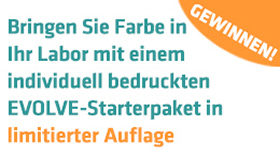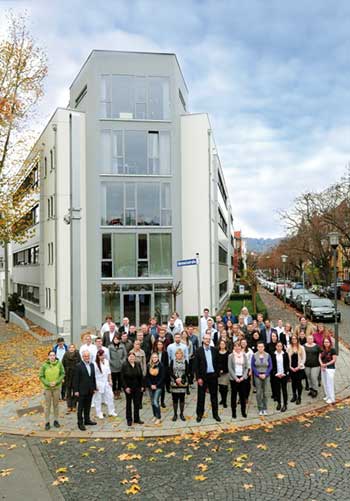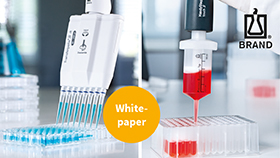Be Curious and Ask Odd Questions -
Interview with Thomas Henkel, CEO of Targos
Career strategies for young European scientists
by Ralf Schreck, Labtimes 01/2016
Page 1 | Page 2 | Page 3
What does Targos stand for today?
Henkel: Targos stands for quality, reliability, experience in biomarker services and deep scientific interest in new therapies and diagnostics. Meanwhile, the company has supported many drug and diagnostic approvals, including therapy-changing drugs with companion diagnostics, such as Herceptin in early breast cancer and gastric cancer, Vemurafinib in Melanoma or Tarceva in lung cancer. The successful collaboration with Roche over more than ten years validated our work for many other international partners from the pharmaceutical and diagnostic industry.
What role does in-house research play at Targos? What influence does the rapid technological progress have on your company?
Henkel: As a contract research organisation, Targos is following the customer demands in establishing and validating novel technologies and biomarkers. A strong and effective in-house assay development and validation is key. We have to recognise technology trends early on, such as multiplex assays or circulating tumour DNA and ask, if these techniques will be robust and sensitive enough to meet requirements for good clinical practice (GCP) and other regulations in large, global Phase III trials or companion diagnostic approval trials. We also have to be on top of new therapy trends, such as immune therapeutics in oncology. In addition, we have to give answers to the question, how to select patients with higher likelihood of response to the new treatments. This is important to avoid unnecessary side effects, make development more effective and keep therapies affordable.
Over the years, Targos has steadily grown to about 100 employees. A recent focus of the corporate strategy has been on diversification and internationalisation. What is next?
Henkel: The technology portfolio has grown to over 100 biomarkers on many different platforms, which is paralleled by the need for skills. Still, our credo is a thorough pathology review of any sample going through the Targos labs, addressing the huge heterogeneity of many tumours. Our reputation has spread and we have been asked to offer our services in China and in the US. So far, all our goals have been achieved with organic growth, financed by our own profits. However, being a partner of huge successful organisations, such as Roche, Bayer, Boehringer, AstraZeneca or Merck & Co. with an increasing demand for global one-stop shop services and regulatory expertise, requires a growth, which at a certain point cannot be achieved solely by own efforts any more. But this is a nice challenge to have.
What is your view on today’s German biotech sector? What are the ingredients for success?
Henkel: Commercial success depends on a market to sell the products, great ideas and people, who are able to realise innovation. The biotech market is global, thus there is room for many services. The development of own products, especially new drugs and companion diagnostics requires significant capital, which today is rather limited in Germany. Investors are not Venture Capital firms any more but a few family offices. The main reason for this is that there are only a few success stories, and limited exit options and incentives for the investment community. Looking back twenty years, when capital was available much easier, the financed projects were very early and immature. Most of the projects financed in the biotech sector back then, would have been financed publicly in other countries. Thus, the projects were risky and the attrition high, which did not motivate more investments.
Another drawback was the type of original research in Germany. German original life science research was strong in disciplines, such as developmental biology, which were not naturally the basis for product development. In other disciplines, such as cell biology, signal transduction research, genomics or proteomics, the US or the UK were clearly ahead of Germany and commercialisation started there. This has been levelled nowadays to some extent but German researchers have to be more innovative, have to recognise new trends earlier and have to get them funded by public grants. We now see a new generation of companies, with great product ideas and more experienced teams. Currently, many of them have secured financing from other European countries or the US and hopefully we will see new therapies or diagnostics made in Germany in the near future.
What is your advice for the next generation of scientists?
Henkel: Be curious and ask odd questions. Real innovation is not usually deriving from worn-out footpaths. In the last 30 years we have seen a ‘biologisation’ of many industries, which gives biologists many new perspectives. Today, biology is an information science; the wealth of data is sometimes overwhelming. It is worthless, however, if you are not able to ask the right questions.
What do you do in your spare time?
Henkel: I enjoy nature with my family in the local woods or on a sailing boat, and love to play and watch basketball.
Thomas Henkel, thank you very much for your time.
Page 1 | Page 2 | Page 3
Last Changed: 02.03.2016







